“It Didn’t Fit In With Artistic Rules”: Terrifying Figure Unearthed From 18th-Century Artwork
Categories: Art | Culture | Exhibition | History | World
By Vika https://pictolic.com/article/it-didnt-fit-in-with-artistic-rules-terrifying-figure-unearthed-from-18th-century-artwork.htmlIt takes years and sometimes centuries to unveil some of the world’s biggest historical figures and understand our most precious artifacts.
Even the most terrifying pieces deserve recognition, no matter the efforts trying to hide them, as it sometimes helps provide important context to forgotten past events and culture.
As a result, a group of British conservationists have recently made a diabolical rediscovery after spending significant time trying to restore a 1789 Joshua Reynolds painting.
The 230-year-old painting, titled The Death of Cardinal Beaufort, was known to depict a scene from Shakespeare’s Henry VI, Part 2 in which the titular king arrives at the bedside of the dying cardinal, his great uncle, Art-Net states.
6 PHOTOS
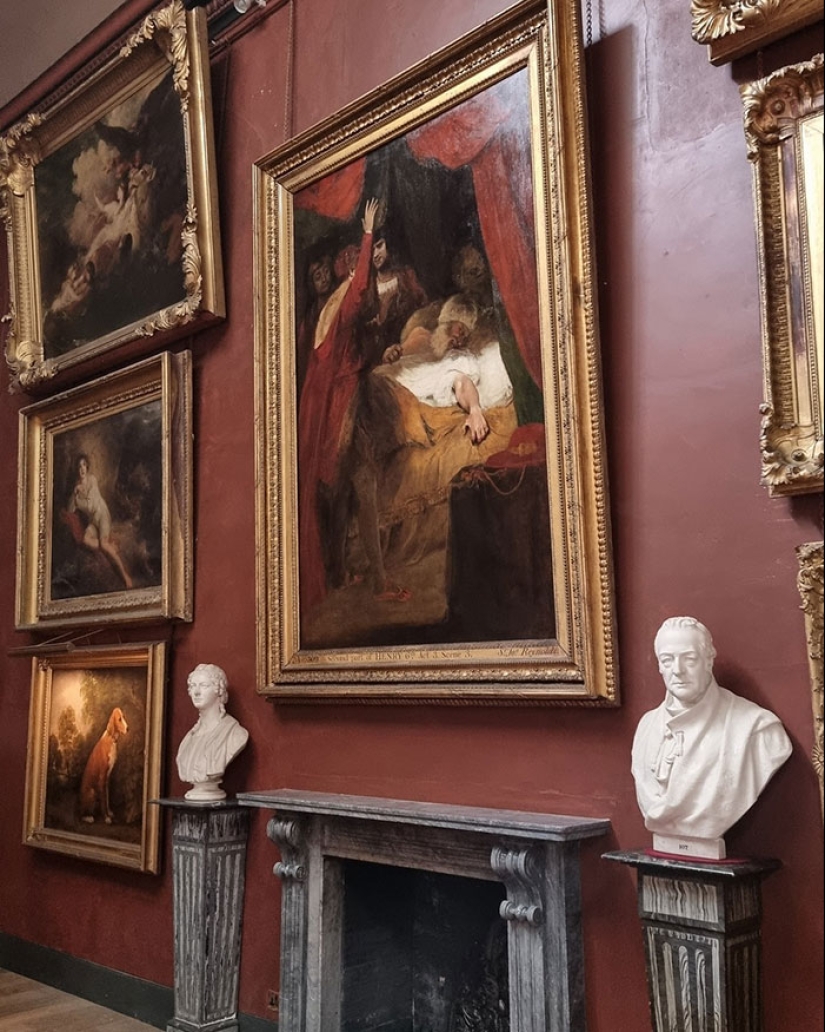
1. British restorers have rediscovered a hidden demonic figure in a 230-year-old work titled The Death of Cardinal Beaufort by Joshua Reynolds
Image credits: petworthnt
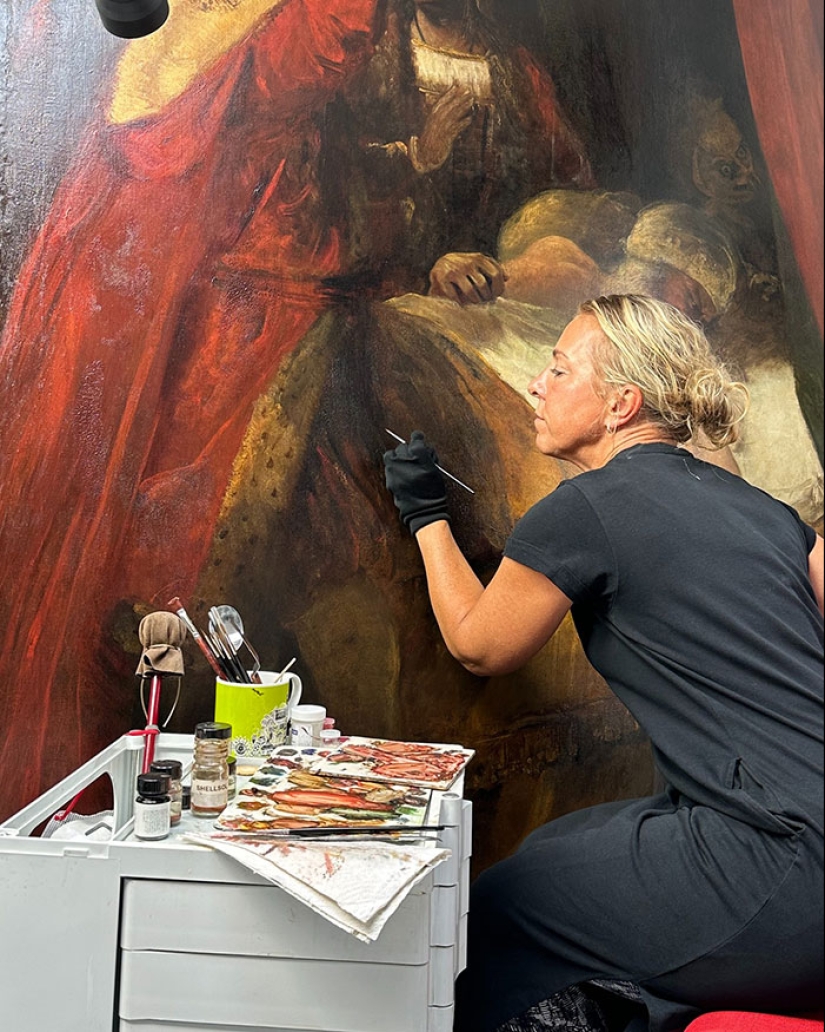
#2
Image credits: petworthnt
Unbeknownst to certain people, Joshua had also painted a demonic-looking figure, known as a “friend”, creeping behind the moribund cardinal, a representation that has sparked controversy and therefore condemned the figure to years of decay.
After years of fading out of Joshua’s masterpiece, the eerie demon was finally restored following hard and lengthy work provided by multiple conservationists.
In a recently published press release written by The National Trust, which conserves historic landmarks in England, Wales, and Northern Ireland, four pieces by the 18th-century artist were reportedly conserved to mark what would have been his 300th birthday.
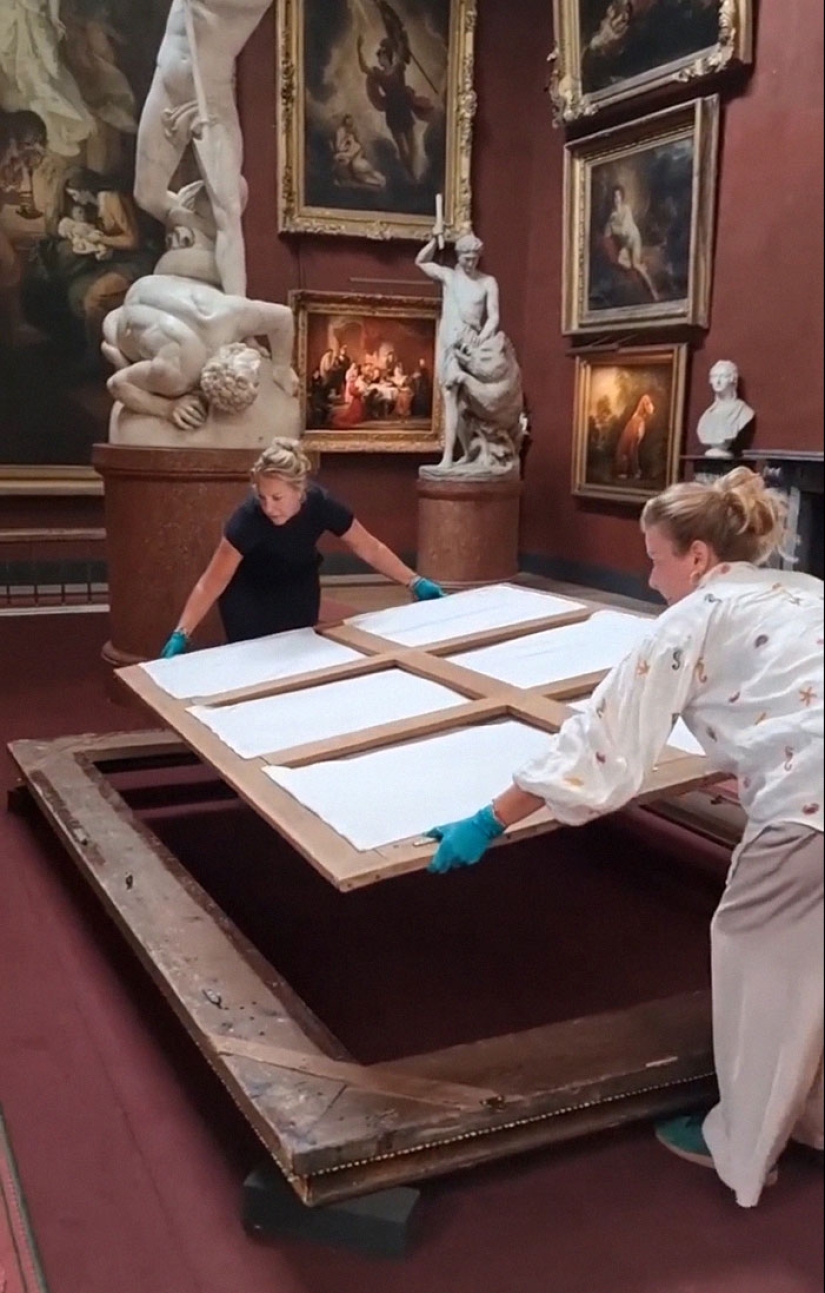
3. Conservators had to remove an extra layer of canvas applied to the back; it looked like attempts had been made to hide the fiend
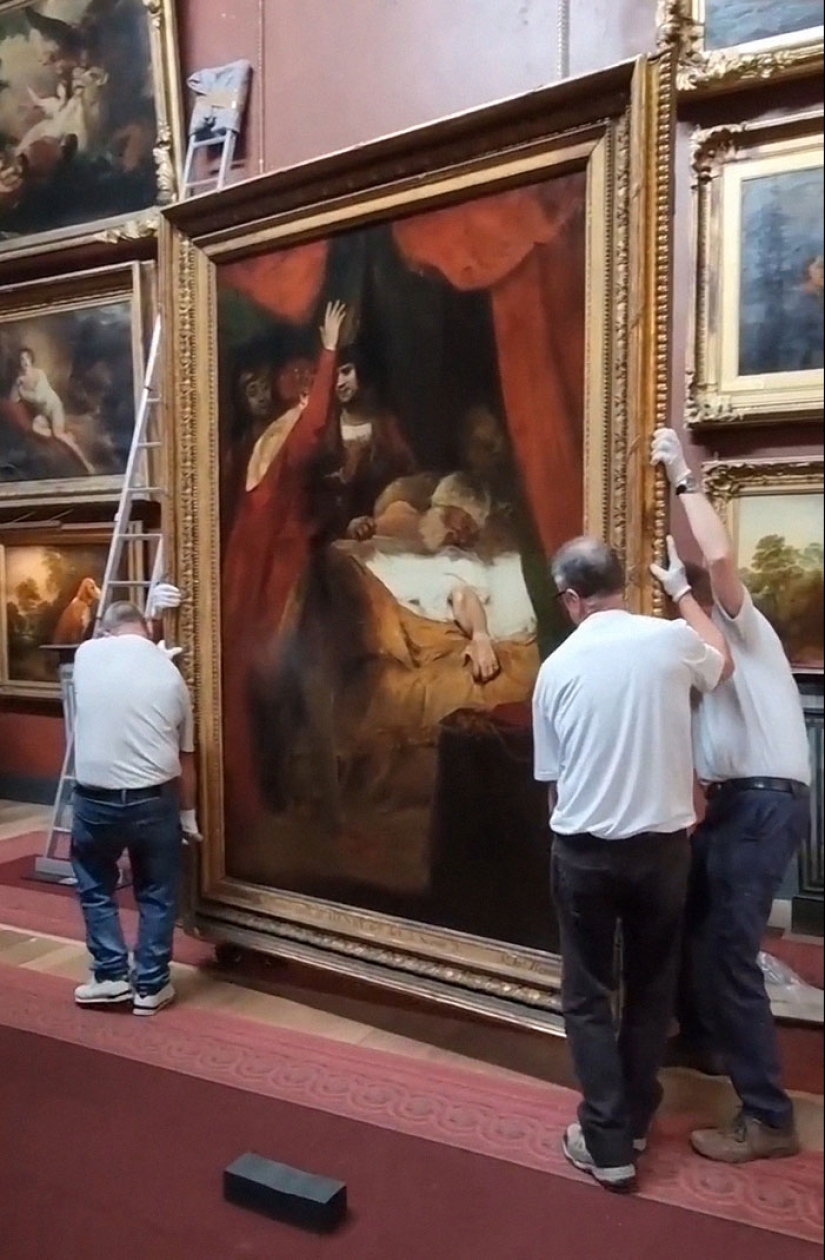
4.
Image credits: petworthnt
The Grand Style painter conceived the controversial piece for the Shakespeare Gallery in London’s Pall Mall at the end of his career.
The inclusion of the fiend lurking on the pillow behind the dying Cardinal was controversial at the time, as John Chu, the Trust’s Senior National Curator for Pictures and Sculpture, explained:
“It didn’t fit in with some of the artistic rules of the times to have a poetic figure of speech represented so literally in this monstrous figure.
“When it was first shown at the Shakespeare Gallery in 1789 it generated more controversy than any other work on show.”
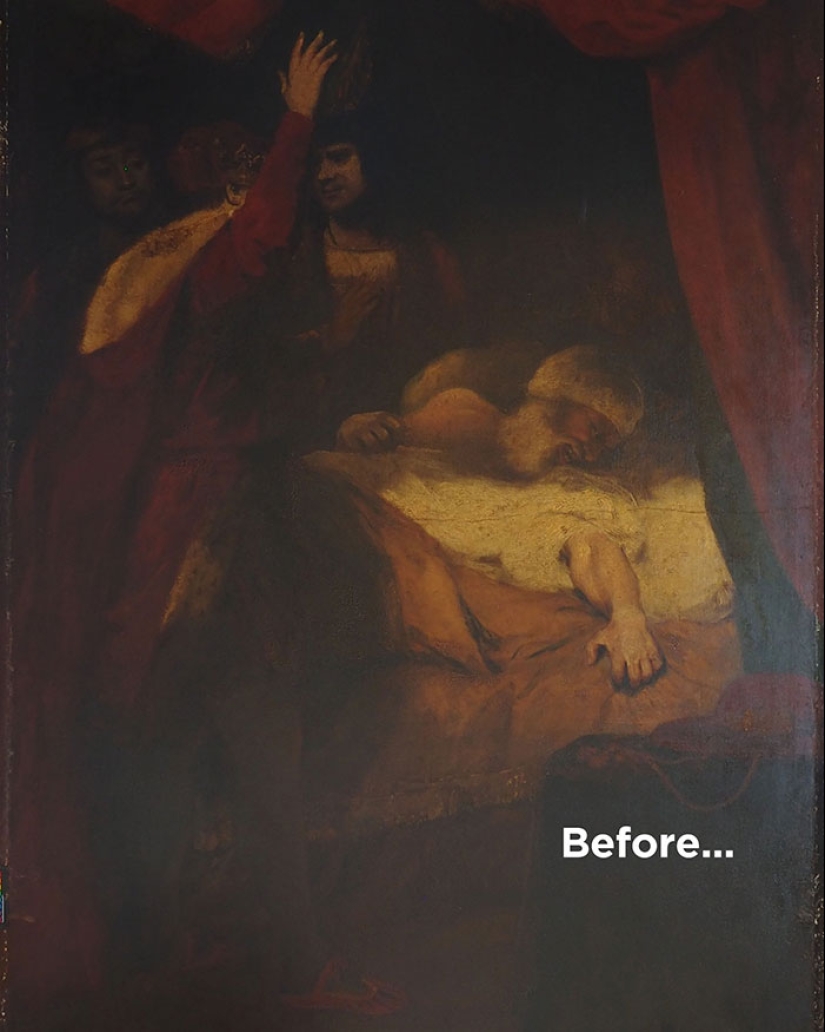
5. The painting depicts a scene from Shakespeare’s Henry VI Part 2, as the king witnesses the death of his great-uncle, Cardinal Beaufort
Image credits: petworthnt
John continued: “While it was considered acceptable in literature to introduce the idea of a demon as something in the mind of a person, to include it visually in a painting gave it too physical a form.
“There were even people who argued that it should have been painted out, although records of conversations with the artist show he resisted such attempts to alter the work.”
At the time of its presentation, a critic wrote in The Times on May 7, 1789: “The Imp at the Cardinal’s bolster cannot spoil the Picture, but it does no credit to the judgment of the Painter.
“We rather apprehend that some Fiend had been laying siege to Sir Joshua’s taste when he determined to literalize the idea.
“The license of Poetry is very different from that of Painting, but the present subject itself is complete in itself, and wants not the aid of machinery from Heaven or Hell. In this enlightened period, astonishment and pity wait upon it.”
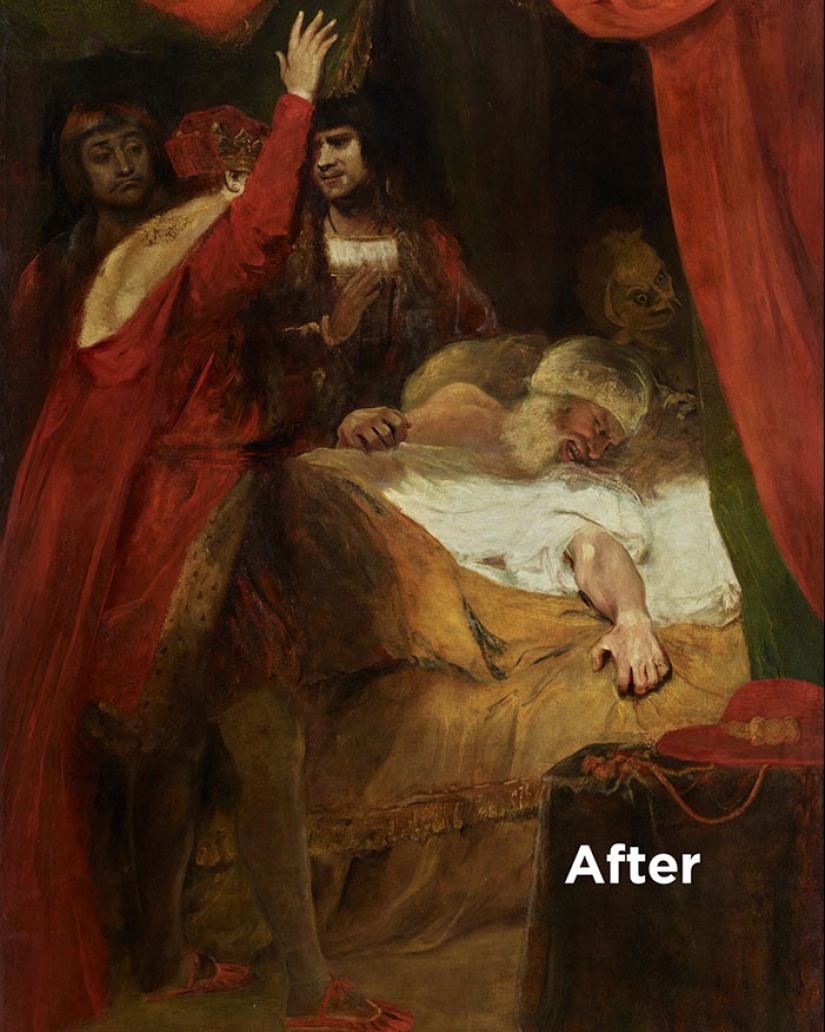
6. The inclusion of the fiend lurking on the pillow behind the dying Cardinal was controversial in the 18th century
Image credits: petworthnt
Early copies of The Death of Cardinal Beaufort showed the infamous diabolical character; however, in a second printing of the painting in 1792, attempts were made to remove the evil body.
John said: “It perhaps isn’t a surprise that it had receded so far into the shadows of the picture.
“It appears it was misunderstood by early conservators.
“Some decades after the painting was done, that area seems to have deteriorated into small islands of paint and become less clear due to the constituent parts of the paint.
“Degradation of successive varnish layers over the years made it even less visible.”
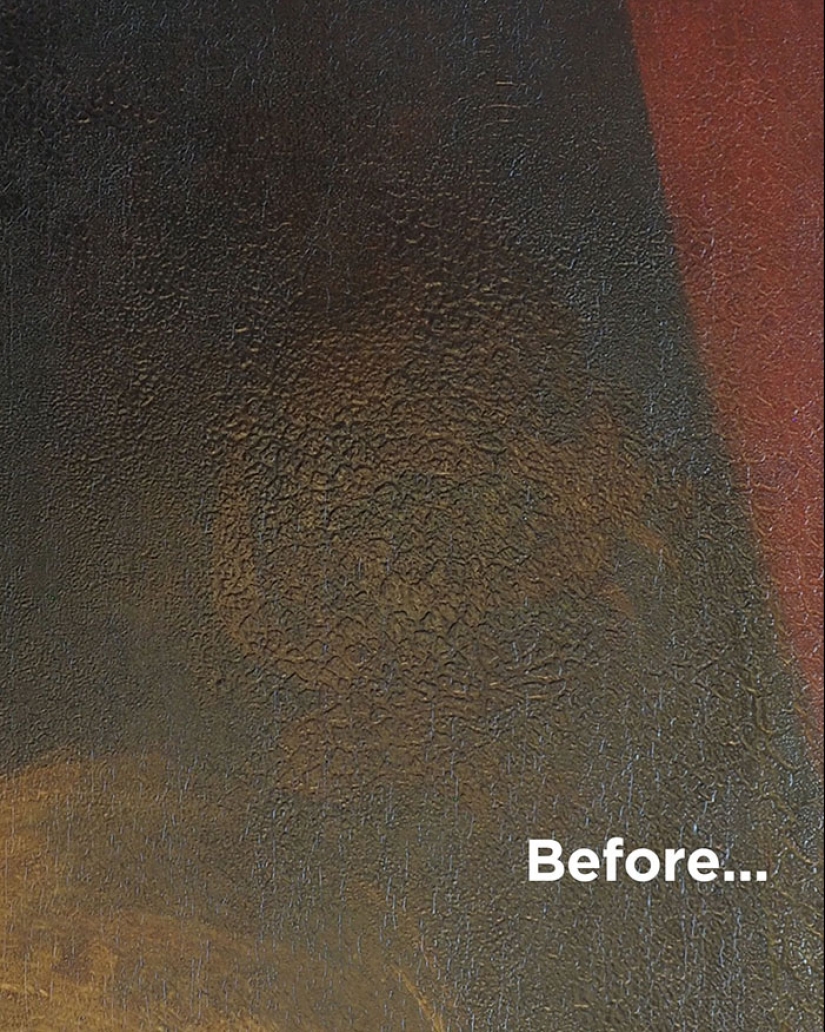
7.
Image credits: petworthnt
When examined closely by the National Trust’s paintings experts, it became clear the painting had been tackled by several hands with a lot of overpainting, the Trust reported.
Becca Hellen, the Trust’s Senior National Conservator for paintings, explained: “Reynolds is always difficult for conservators because of the experimental way he worked, often introducing unusual materials in his paint medium, striving for the effects he wanted to achieve.
“The painting was lined, with an extra layer of canvas applied to the back, in the 19th century, and at that time too much heat would have been applied.
“The area with the fiend was especially difficult.
“Because it is in the shadows, it was painted with earth browns and dark colors which would always dry more slowly, causing shrinkage effects.
“With Reynolds’ resinous and waxy mediums and pigments not aiding drying of the paint it was no surprise that the area of the fiend was a challenge.
“With the layers added by early restorers, it had become a mess of misinterpretation and multiple layers of paints.”
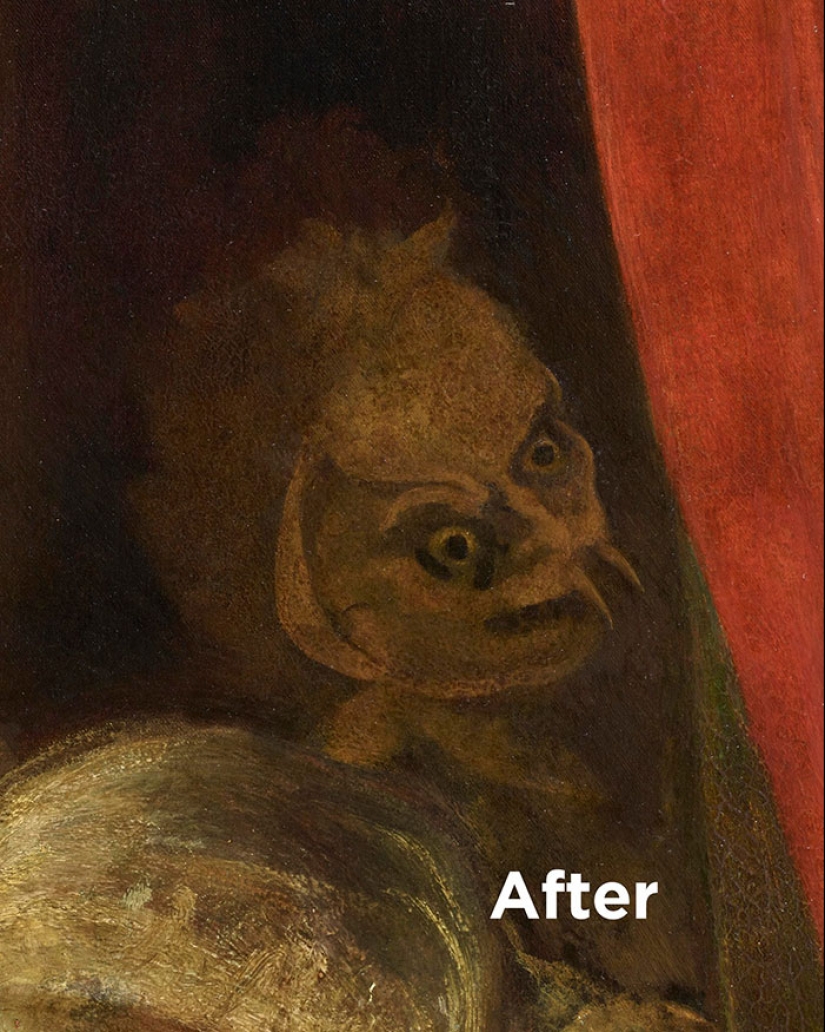
8. “When it was first shown at the Shakespeare Gallery in 1789 it generated more controversy than any other work on the show,” Trust’s Senior National Curator said

9.
Image credits: petworthnt
Becca went on to explain that conservationists wanted to ensure that Joshua’s large painting represented its original form, including “the fiend” to be uncovered.
As a result, experts removed all the non-original darkened varnishes and ensured the painting still correctly showed its form and perspective.
According to the Trust, the 1805 the Shakespeare Gallery’s collection was sold, and The Death of Cardinal Beaufort was bought by the 3rd Earl of Egremont at Petworth for £530.5s (the equivalent of about £38,000 today).
The painting remained at Petworth until it was recently conserved by the Trust.
Speculations arose from the internet, trying to comprehend a potential hidden message



















Keywords: Precious artifacts | Artistic rules | 18th Century Artwork | Historical figures | Artworks | Art
Post News ArticleRecent articles

It's high time to admit that this whole hipster idea has gone too far. The concept has become so popular that even restaurants have ...

There is a perception that people only use 10% of their brain potential. But the heroes of our review, apparently, found a way to ...

New Year's is a time to surprise and delight loved ones not only with gifts but also with a unique presentation of the holiday ...